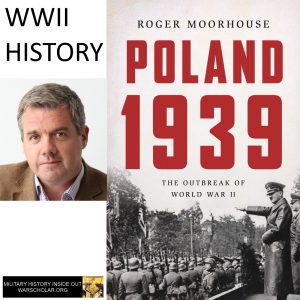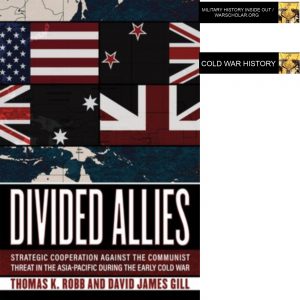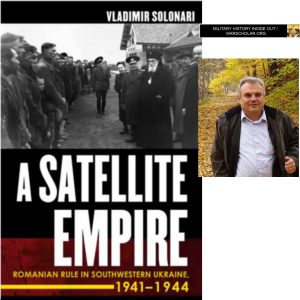Podcast: Play in new window | Download
Subscribe: RSS
 How Poland was torn in half in 1939 – Interview with military history author Roger Moorhouse
How Poland was torn in half in 1939 – Interview with military history author Roger Moorhouse
Check out this book here https://amzn.to/3eXW7Gp
Interview Timeline
Roger Moorhouse has been a historian for the Third Reich, Poland, and WWII for many years and has written many books on the subject. He recently published a book on the German and Soviet invasions of Poland in 1939 and we spoke about the book and this military event. Poland 1939 (Basic Books, 2020)
0:39 – Roger talks about how he got into studying Poland and WWII.
2:14 – Roger talks about the strength of the German military in 1939 and the propaganda narrative.
5:52 – Roger talks about the scope of the book from tactical to a wider scope.
8:00 – Roger talks about the reasons for Germany’s early setbacks.
11:16 – Roger talks about the terrain and weather of Poland in 1939.
13:52 – Roger talks about German General Guderian reminiscing about his ancestral lands in Poland.
15:39 – Roger compares German tactics in Poland versus the French campaign and the massacres of POWs and civilians.
19:13 – Roger talks about ethnic German attacks against Poles.
22:08 – Roger talks about German propaganda and Goebbels.
27:01 – Roger talks about a battle with a German Panzer army.
28:22 – Roger talks about the Soviet invasion of Poland.
32:12 – Roger talks about Soviet propaganda about its invasion of Poland.
34:06 – Roger discusses Soviet atrocities against upper class and middle class Poles.
36:13 – Roger talks about the Polish death toll in WWII.
37:43 – Roger talks about what materials he used to do his research.
40:20 – Roger talks about the lack of access to Soviet materials.
41:54 – Roger talks about having visited some of the battlefields he wrote about.
48:05 – Roger addresses the concentration camps in Poland.
51:39 – Roger talks about the German and Russian use of elite troops to commit atrocities.
57:30 – Roger can be found at www.rogermoorhouse.com and on twitter @roger_moorhouse
Links of interest
https://www.basicbooks.com/titles/roger-moorhouse/poland-1939/9780465095414/
https://www.rogermoorhouse.com/
https://twitter.com/Roger_Moorhouse
Contact Information
For more “Military History Inside Out” please follow me at www.warscholar.org, on Facebook at warscholar, on twitter at Warscholar, on youtube at warscholar1945 and on Instagram @crisalvarezswarscholar. Or subscribe to the podcast on Apple Podcasts | Google Podcasts | Stitcher | Spotify
Guests: Roger Moorhouse
Host: Cris Alvarez
Tags: military, history, military history, conflict, war, interview, non-fiction book, Poland, WWII, Germany, 1939, September campaign, USSR, Great Britain, propaganda, espionage, air power, fortified, blitzkreig, Prussia, Guderian, Austria, liebensraum, France, massacres, Nazi, Goebbels, cavalry, tanks, class war, nationalists, Karte archives, concentration camps, NKVD, SS, Wehrmacht, Ukraine
Check out this book here https://amzn.to/3eXW7Gp
As an Amazon Associate I earn from qualifying purchases.



